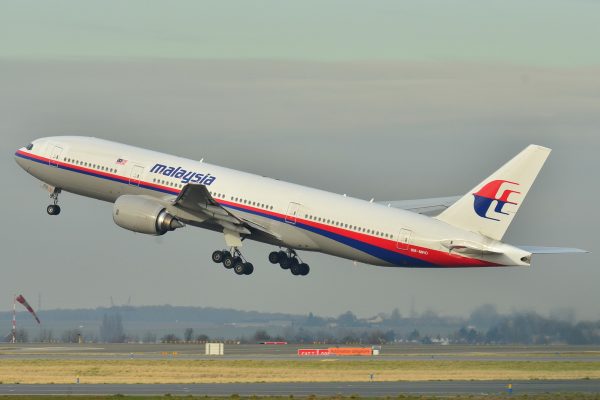The response from the maritime states in ASEAN was almost immediate, with Brunei, Indonesia, the Philippines, Singapore, Thailand and Vietnam offering varying degrees of SAR assistance. This initial willingness of ASEAN neighbour states to help each other out should be seen as a positive development in the region and evidence that the existing regional community-building exercises are starting to work.
But despite an abundance of resources, the MH370 SAR operation was characterised by poor cooperation and communication, contradictory statements and a lack of trust in sharing sensitive information between ASEAN countries. The strengthened regional community has been very much overshadowed by the poor coordination of the MH370 SAR operation in the Gulf of Thailand and South China Sea.
ASEAN’s haphazard response to the MH370 disaster shows that the region still lacks enough trust to effectively launch a coordinated response to a serious emergency. ASEAN is routinely criticised as being top-heavy, overly bureaucratic and very slow to move. Its absence during a time when leadership was sorely in demand reinforces a view that it is becoming an increasingly irrelevant regional organisation. Enduring concerns over security dominate regional goodwill — despite new rounds of multilateral meetings, forums or goals, which appear to sprout up every year.
In 2015, ASEAN is expected to put into place an Open Skies Policy, or the Multilateral Agreements on Air Services and the Full Liberalisation of Freight Services, which aims to increase competition in the region’s aviation sector by limiting the restrictions on where airlines can fly and land. The region will see more flights, lower costs and greater competition. But the cracks exposed in ASEAN’s aviation sector by MH370’s disappearance will only be widened as more planes take to the skies. Before ASEAN can implement and execute a successful Open Skies Policy, a number of issues exposed during the search and rescue will need to be resolved.
Security issues may be at stake in ASEAN and the South China Sea, but there must be a way for states to share sensitive information in the event of a major catastrophe. While the MH370 search is now focussed on the southern Indian Ocean (and is being coordinated by the Australian government), the initial area of investigation that took place on 8 March focussed on waters between Malaysia and Vietnam. Yet political and military spokespersons in Malaysia, Vietnam and China gave contradictory statements. Early search efforts included resources from Thailand, Brunei, Indonesia, Singapore and the Philippines but these were also marked by confusion, a hesitance to share information and poor communication between the search teams. Furthermore, it took 10 days for the Royal Thai Air Force to announce that it had tracked MH370 after it had taken a westward turn, ultimately wasting valuable time and resources.
Poor lines of communication and a prevailing unwillingness to share vital information hampered the first few days of the search effort. Mechanisms must be established within the ASEAN Defence Ministers Meeting (ADMM) so that information can be shared and communication lines opened during times of emergency.
The search also highlighted the poor progress ASEAN has made in developing its maritime Search and Rescue, and Humanitarian Assistance and Disaster Relief capabilities. While there have been a number of agreements signed between the ASEAN countries and other regional powers, progress towards building the capacity to coordinate a search and rescue operation as proposed in these agreements was shown to be limited.
The role of the ASEAN Coordinating Centre for Humanitarian Assistance on Disaster Management and ASEAN-Emergency Rapid Assessment Team could be expanded to specialise in coordinating the regional response to aviation or maritime disasters. Training exercises such as the ADMM-Plus Humanitarian Assistance and Disaster Relief exercises held in Brunei in 2013 should focus on building regional SAR capacities.
Finally, the potential threats posed by the misuse of passports, poor airport security practices and inadequate information sharing on persons of interest will be multiplied when there are more planes in the air and more airports servicing the region. Although it was ultimately inconsequential that two passengers boarded MH370 using false passports, this is still a matter of concern and must be addressed. As new airports are opened and existing hubs are expanded, Open Skies should also enforce minimum security standards that apply to all airports and airliners operating in the region. The convergence of the tragedy of MH370 and the promise of the Open Skies agreement can be seen as an opportunity for ASEAN to drive growth as well as to improve safety in the region’s aviation sector.
Poor communication and coordination in the SAR operation, an unwillingness to share sensitive information and poor airport security standards must be fixed before the next disaster. But ASEAN is not a hopeless case. While the SAR response to the MH370 disaster was disorganised and deserving of criticism, it concealed the fact that the region was more than willing to rally and search for the missing plane. The ASEAN community is growing stronger, but work still needs to be done to build trust and facilitate mechanisms for cooperation.
Jacob Hogan is a research fellow at the Institute of Security and International Studies, Faculty of Political Science, Chulalongkorn University.


Though many countries are looking for the plane with the best possible means, it really saddens that ASEAN community still lags behind.